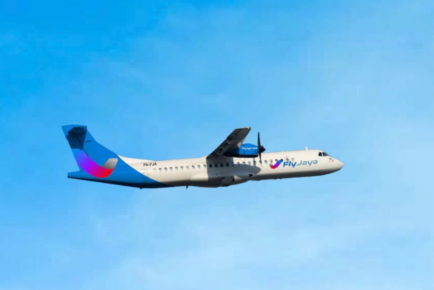
Jetcraft is expanding rapidly in the continent by turning challenges into opportunities and adding a local touch to customer service
Everyone realizes that business aviation is a global industry that reaches across the entire planet. But in recent years, the industry has turned its attention to Africa as private aircraft ownership has truly taken off in this relatively new market.
Economic growth has driven much of this increase as the continent’s economy has been surging by about 5 percent annually, which is a rate expected to continue through 2015. Private jet ownership is also expected to grow at the steady pace of 5.6 percent over the next two decades according to a recent report issued by Boeing.
So why is Africa enjoying a boom in private jet ownership?
There are several elements spurring this growth. Africa is among the fastest rising private aviation markets due to a strengthening economy and a related increase in high net worth individuals (HNWI). The ultra-high net worth (UHNW) population in Africa is expected to grow by 69% over the next decade, from 2,488 individuals in 2012 to 4,197 in 2022. In addition, Africa’s HNWI population now stands at around 100,000 individuals. These HNWIs hold approximately one trillion in assets. So there is a large pool of potential private jet owners, particularly in nations such as South Africa and Nigeria.
Moreover, the challenges of transportation infrastructure across Africa make private aircraft ownership very attractive and even necessary for business. The continent is not well served by airlines or by other transportation methods. Even when areas are connected, infrastructure can be problematic. For example, across the whole of Sub-Saharan Africa, 85 percent of airstrips are either too short or unpaved. In much of Africa, a private jet is a critical business tool and no longer seen merely as a status symbol.
Of course, there are other difficulties facing African aviation. Differing certifications and registrations across countries and issues with maintenance and overhaul facilities are items that must be addressed. In addition, the continent has some financing issues that, when resolved, could truly help the industry prosper.
Jetcraft has undertaken several recent steps to ensure that it is seen as the leading consultancy in African aviation. Co-owner Jahid Fazal-Karim and President Chad Anderson have overseen the acquisition and integration of ExecuJet Aircraft Trading, which allows for a larger international footprint for Jetcraft and a strengthening of its on-the-ground coverage. This addition also helps to deliver more localized, face-to-face customer relationships across all regions, including Africa.
Jetcraft’s focus on the Africa market will help buyers and sellers of private aircraft by providing trusted advice and consultation while giving them access to a global network. With a particular focus in Nigeria and South Africa, the company has seen a rapid increase in sales activity and interest.
So how does Jetcraft see its role in the future of business aviation in Africa? According to Melissa Meyer, responsible for Jetcraft’s sales in Africa, the company is involved in many organizations like the African Business Aviation Association (AfBAA) that helps keep our finger on the pulse of Africa.
“We also are expanding our network of associates across the sub Saharan region and have our ear to the ground as well as a physical presence based in South Africa,” notes Meyer. “We also believe in face to face communications with our clientele and will travel extensively so that we understand each client’s individual needs, culture and challenges. All these factors combine to contribute to the ‘African flavor’ that we have to offer.”
It is truly full speed ahead for business aviation in Africa.
SIGN UP FOR OUR MONTHLY JETSTREAM RECAP
Don't miss future Jetstream articles. Sign up for our Jetcraft News mailing list to receive a monthly eblast with links to our latest articles. Click to join the 1,800+ subscribers on our mailing list.





